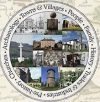Following the family tradition, Francis, too, was a poet of considerable merit. He married Jeane Campbell (his first cousin) in the Parish of Lochgoilhead on 3rd April, 1655, and had two known sons, Robert in 1656 and James in 1657, both christened in Kilbarchan Parish.
Francis was involved with the Engagers, who prioritised loyalty to Charles I above their Presbyterian convictions. The Engager army had invaded England in 1648, where it was decisively defeated by Oliver Cromwell’s army at the Battle of Preston. Whether Francis was actively involved in the battle is unknown. The Church of Scotland strongly disapproved of the Engagers’ activities and in 1649, in retribution, Francis was seated in front of the pulpit in Kilbarchan Parish Church, in full view of the congregation and had to confess and give evidence of his repentance 1649. Two years later he again had to appear before the congregation to confess the sin of visiting his relative ‘old Lady Semple’ who had been excommunicated from the Church of Scotland for her papal sympathies.
Francis had inherited his father’s debts, but continued to move in the upper echelons of society. He appears to have been over-generous to his friends, standing surety on numerous occasions. He was also a spendthrift, selling off his assets in an attempt to maintain his lifestyle.
More importantly, Francis Semple is remembered for his excellence as a poet. His lyrics for songs include the original version of Auld Langsyne, adapted over a century later by Robert Burns, and Maggie Lauder which makes mention of the Kilbarchan piper Habbie Simson,
There’s nane in Scotland plays sae weel,
Sin’ we lost Habbie Simson
Francis’s poems give us an insight into his character and lifestyle. He was a great admirer of his acquaintance, the Duke of Albany (later James II). His poems honouring the Duke of Albany were written in a serious, respectful tone. In contrast his impromptu epitaphs show his cutting wit. On the death of Lady Schaw of Greenock, he wrote,
Heir lyis interrit, forbye a witch
Ane oppressor baith of puir and rich:
How scho fends, and how scho fares,
Naebodie kens, and as few cares.
A number of his poems are humorous personal narratives, written in the rich Scots vernacular. These poems show Francis as a bit of a likeable rogue, not afraid to make public his brushes with the law, and his financial difficulties. The theme in his poem Banishment of Poverty, as the name suggests, is his perpetual pecuniary struggle. Among his many trials and tribulations Francis again mentions his local village. He writes that he first met Poverty in Kilbarchan, ‘where Habbie’s drones blew many a blast’ and says of his enemy, Poverty,
For there he gripped me full and fast
When first I fell in cautionrie
Francis died in 1682 in relative poverty, having relinquished his estate and moved to Burnfoot, a small house in Lochwinnoch Parish. Sadly, despite his undoubted merit as a Scottish poet, he unfortunately left a very large legacy of financial debt to his successors.
© 2018, Helen Calcluth, Renfrewshire Local History Forum

